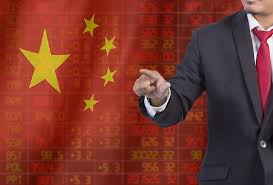
The stringent anti monopoly steps that have been taken by Chinese regulators against the Chinese e-commerce giant Alibaba's financial technology affiliate Ant Group will also be taken against other domestically grown payment service companies, said China's central bank on Thursday.
Back in November 2020m Chinese regulators force stopped a planned and announced initial public offering worth $37 billion of the Ant Group with concerns growing widely about banks using third-party technology platforms such as that of Ant for underwriting loans because of fears that such business practices will lead to rising incidents of credit defaults and a fall in asset quality.
A company wide restructuring on the Chinese fintech giant were imposed this April by the Chinese regulators that was led by the country’s central bank. The measures included forcing the group to turn itself into a financial holding company instead of a tech company and to cut its links between with its payments app, Alipay, as well as its other businesses.
"Monopolistic behavior does not only exist in the Ant Group but also in other institutions," Fan Yifei, vice governor of the People's Bank of China (PBOC), told a media conference in Beijing.
The bank would reveal the measures soon, Fan said without elaborating further.
The speed at which China’s payment industry has developed and grown over the last few years has been very rapid, Fan said but added that at the same time there were "monopoly and excessive capital expansions during (its) development".
Ant's Alipay and Tencent's WeChat Pay virtually dominate the entire online payments ecosystem of China.
According to reports last year, the apex antitrust agency of China was urged in 2020 by the People’s Bank of China – the country’s central banker, to consider whether there was a need to start an investigation into Alipay and WeChat Pay because of the growing duopoly of the companies and influence on the online payments market that the companies exerted, .
There were no comments on the PBOC statement from other tech companies including Tencent.
(Source:www.usnews.com)
Back in November 2020m Chinese regulators force stopped a planned and announced initial public offering worth $37 billion of the Ant Group with concerns growing widely about banks using third-party technology platforms such as that of Ant for underwriting loans because of fears that such business practices will lead to rising incidents of credit defaults and a fall in asset quality.
A company wide restructuring on the Chinese fintech giant were imposed this April by the Chinese regulators that was led by the country’s central bank. The measures included forcing the group to turn itself into a financial holding company instead of a tech company and to cut its links between with its payments app, Alipay, as well as its other businesses.
"Monopolistic behavior does not only exist in the Ant Group but also in other institutions," Fan Yifei, vice governor of the People's Bank of China (PBOC), told a media conference in Beijing.
The bank would reveal the measures soon, Fan said without elaborating further.
The speed at which China’s payment industry has developed and grown over the last few years has been very rapid, Fan said but added that at the same time there were "monopoly and excessive capital expansions during (its) development".
Ant's Alipay and Tencent's WeChat Pay virtually dominate the entire online payments ecosystem of China.
According to reports last year, the apex antitrust agency of China was urged in 2020 by the People’s Bank of China – the country’s central banker, to consider whether there was a need to start an investigation into Alipay and WeChat Pay because of the growing duopoly of the companies and influence on the online payments market that the companies exerted, .
There were no comments on the PBOC statement from other tech companies including Tencent.
(Source:www.usnews.com)





